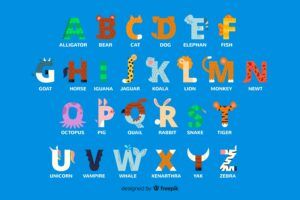¡Hola estudiantes inglés!
En English Connection, estamos encantados de acompañarte un post más en tu viaje hacia el dominio del idioma de Shakespeare. Hoy, vamos a tratar uno de los pilares fundamentales del inglés: el verbo «to be». ¡Sí, ese pequeño pero poderoso verbo que te abrirá las puertas a infinitas conversaciones y conexiones!
Verbo to be en inglés
El verbo «to be» es uno de los verbos irregulares por excelencia. Es como el pegamento que une las partes de una oración. Esencialmente, nos ayuda a describir quién somos, cómo nos sentimos y qué estamos haciendo en cualquier momento dado. En su forma más básica, se traduce como «ser» o «estar» en español, ¡así de versátil es!
Conjugación del verbo «to be»
Ahora, vamos al meollo del asunto: la conjugación. Pero no te preocupes, ¡no es tan complicado como parece!
Presente simple verb to be
- Yo soy (I am)
- Negativo: I am not
- Interrogativo: Am I?
- Tú eres (You are)
- Negativo: You are not / You aren’t
- Interrogativo: Are you?
- Él/Ella/Usted es (He/She/You is)
- Negativo: He/She/You is not / He/She/You isn’t
- Interrogativo: Is he/she/you?
- Nosotros/Nosotras somos (We are)
- Negativo: We are not / We aren’t
- Interrogativo: Are we?
- Ellos/Ellas/Ustedes son (They are)
- Negativo: They are not / They aren’t
- Interrogativo: Are they?
Por ejemplo:
- I am happy. (Estoy feliz)
- You are studying. (Tú estás estudiando)
- He is tall. (Él es alto)
- We are friends. (Nosotros somos amigos)
- They are busy. (Ellos están ocupados)
Pasado simple
- Yo era (I was)
- Negativo: I was not / I wasn’t
- Interrogativo: Was I?
- Tú eras (You were)
- Negativo: You were not / You weren’t
- Interrogativo: Were you?
- Él/Ella/Usted era (He/She/You was)
- Negativo: He/She/You was not / He/She/You wasn’t
- Interrogativo: Was he/she/you?
- Nosotros/Nosotras éramos (We were)
- Negativo: We were not / We weren’t
- Interrogativo: Were we?
- Ellos/Ellas/Ustedes eran (They were)
- Negativo: They were not / They weren’t
- Interrogativo: Were they?
Por ejemplo:
- I was tired yesterday. (Yo estaba cansado ayer)
- You were late for class. (Tú llegaste tarde a clase)
- She was happy to see you. (Ella estaba feliz de verte)
- We were at the party last night. (Nosotros estábamos en la fiesta anoche)
- They were in London last summer. (Ellos estaban en Londres el verano pasado)
Futuro simple
- Yo seré (I will be)
- Negativo: I will not / I won’t be
- Interrogativo: Will I?
- Tú serás (You will be)
- Negativo: You will not / You won’t be
- Interrogativo: Will you?
- Él/Ella/Usted será (He/She/You will be)
- Negativo: He/She/You will not / He/She/You won’t be
- Interrogativo: Will he/she/you?
- Nosotros/Nosotras seremos (We will be)
- Negativo: We will not / We won’t be
- Interrogativo: Will we?
- Ellos/Ellas/Ustedes serán (They will be)
- Negativo: They will not / They won’t be
- Interrogativo: Will they?
Por ejemplo:
- I will be at the meeting tomorrow. (Estaré en la reunión mañana)
- You will be a great teacher someday. (Serás un gran profesor algún día)
- She will be in Paris next week. (Ella estará en París la próxima semana)
- We will be on vacation in August. (Estaremos de vacaciones en agosto)
- They will be late if they don’t hurry. (Ellos llegarán tarde si no se apuran)
Presente perfecto verb to be
- Yo he sido (I have been)
- Negativo: I have not / I haven’t been
- Interrogativo: Have I been?
- Tú has sido (You have been)
- Negativo: You have not / You haven’t been
- Interrogativo: Have you been?
- Él/Ella/Usted ha sido (He/She/You has been)
- Negativo: He/She/You has not / He/She/You hasn’t been
- Interrogativo: Has he/she/you been?
- Nosotros/Nosotras hemos sido (We have been)
- Negativo: We have not / We haven’t been
- Interrogativo: Have we been?
- Ellos/Ellas/Ustedes han sido (They have been)
- Negativo: They have not / They haven’t been
- Interrogativo: Have they been?
Por ejemplo:
- I have been to Japan. (He estado en Japón)
- You haven’t been here before. (No has estado aquí antes)
- Has she been to Paris? (¿Ella ha estado en París?)
- We have been friends for years. (Hemos sido amigos durante años)
- They haven’t been to the new restaurant yet. (Ellos no han estado en el restaurante nuevo todavía)
Pasado perfecto
- Yo había sido (I had been)
- Negativo: I had not / I hadn’t been
- Interrogativo: Had I been?
- Tú habías sido (You had been)
- Negativo: You had not / You hadn’t been
- Interrogativo: Had you been?
- Él/Ella/Usted había sido (He/She/You had been)
- Negativo: He/She/You had not / He/She/You hadn’t been
- Interrogativo: Had he/she/you been?
- Nosotros/Nosotras habíamos sido (We had been)
- Negativo: We had not / We hadn’t been
- Interrogativo: Had we been?
- Ellos/Ellas/Ustedes habían sido (They had been)
- Negativo: They had not / They hadn’t been
- Interrogativo: Had they been?
Por ejemplo:
- I had been to London before I moved to Paris. (Había estado en Londres antes de mudarme a París)
- You hadn’t been to the beach until last summer. (No habías estado en la playa hasta el verano pasado)
- Had she been to Spain before her trip last month? (¿Había estado ella en España antes de su viaje el mes pasado?)
- We had been waiting for hours when they finally arrived. (Habíamos estado esperando durante horas cuando finalmente llegaron)
- They hadn’t been informed about the changes. (No habían sido informados sobre los cambios)
Futuro perfecto
- Yo habré sido (I will have been)
- Negativo: I will not / I won’t have been
- Interrogativo: Will I have been?
- Tú habrás sido (You will have been)
- Negativo: You will not / You won’t have been
- Interrogativo: Will you have been?
- Él/Ella/Usted habrá sido (He/She/You will have been)
- Negativo: He/She/You will not / He/She/You won’t have been
- Interrogativo: Will he/she/you have been?
- Nosotros/Nosotras habremos sido (We will have been)
- Negativo: We will not / We won’t have been
- Interrogativo: Will we have been?
- Ellos/Ellas/Ustedes habrán sido (They will have been)
- Negativo: They will not / They won’t have been
- Interrogativo: Will they have been?
Por ejemplo:
- I will have been working here for five years by the end of next month. (Habré estado trabajando aquí durante cinco años para finales del mes que viene)
- You won’t have been living in the city for long when you move to the countryside. (No habrás estado viviendo en la ciudad durante mucho tiempo cuando te mudes al campo)
- Will she have been studying English for a year by the time she takes the exam? (¿Habrá estado estudiando inglés durante un año para cuando tome el examen?)
- We will have been traveling for hours by the time we reach our destination. (Habremos estado viajando durante horas para cuando lleguemos a nuestro destino)
- They won’t have been married for long when they decide to start a family. (No habrán estado casados durante mucho tiempo cuando decidan empezar una familia)

Condicional simple del Verbo «to be»
Además de los tiempos verbales que hemos explorado hasta ahora, el verbo «to be» también se usa en el condicional para expresar situaciones hipotéticas o posibilidades en el futuro. Veamos cómo se conjuga:
Condicional Simple:
- Yo sería (I would be)
- Negativo: I would not / I wouldn’t be
- Interrogativo: Would I be?
- Tú serías (You would be)
- Negativo: You would not / You wouldn’t be
- Interrogativo: Would you be?
- Él/Ella/Usted sería (He/She/You would be)
- Negativo: He/She/You would not / He/She/You wouldn’t be
- Interrogativo: Would he/she/you be?
- Nosotros/Nosotras seríamos (We would be)
- Negativo: We would not / We wouldn’t be
- Interrogativo: Would we be?
- Ellos/Ellas/Ustedes serían (They would be)
- Negativo: They would not / They wouldn’t be
- Interrogativo: Would they be?
Por ejemplo:
- If I were you, I would be careful. (Si yo fuera tú, sería cuidadoso)
- You wouldn’t be happy if you lost your job. (No estarías feliz si perdieras tu trabajo)
- Would she be interested in joining us? (¿Estaría interesada ella en unirse a nosotros?)
- We would be late if we didn’t leave now. (Llegaríamos tarde si no nos fuéramos ahora)
- They wouldn’t be able to attend the party even if they wanted to. (No podrían asistir a la fiesta aunque quisieran)
Condicional Perfecto del Verbo «to be»
Además del condicional simple, también existe el condicional perfecto del verbo «to be». Este se utiliza para expresar situaciones hipotéticas o posibilidades pasadas que podrían haber ocurrido de manera diferente. Veamos cómo se conjuga:
Condicional Perfecto:
- Yo habría sido (I would have been)
- Negativo: I would not / I wouldn’t have been
- Interrogativo: Would I have been?
- Tú habrías sido (You would have been)
- Negativo: You would not / You wouldn’t have been
- Interrogativo: Would you have been?
- Él/Ella/Usted habría sido (He/She/You would have been)
- Negativo: He/She/You would not / He/She/You wouldn’t have been
- Interrogativo: Would he/she/you have been?
- Nosotros/Nosotras habríamos sido (We would have been)
- Negativo: We would not / We wouldn’t have been
- Interrogativo: Would we have been?
- Ellos/Ellas/Ustedes habrían sido (They would have been)
- Negativo: They would not / They wouldn’t have been
- Interrogativo: Would they have been?
Por ejemplo:
- If you had studied harder, you would have been accepted into the university. (Si hubieras estudiado más, habrías sido aceptado en la universidad)
- We wouldn’t have been lost if we had followed the map. (No habríamos estado perdidos si hubiéramos seguido el mapa)
- Would she have been happy if she had won the competition? (¿Estaría feliz ella si hubiera ganado la competencia?)
- They would have been able to finish the project on time if they had worked together. (Ellos habrían podido terminar el proyecto a tiempo si hubieran trabajado juntos)
Usos del Verbo «to be»
Ahora que tenemos las conjugaciones frescas en nuestra mente, veamos cómo y cuándo usar este versátil verbo:
- Identidad y descripción: «I am a student.» (Soy estudiante) Aquí, «am» conecta el sujeto «I» con la descripción «student».
- Estado y condición: «She is happy.» (Ella está feliz) Aquí, «is» indica el estado emocional de «she».
- Ubicación: «The book is on the table.» (El libro está sobre la mesa) «Is» señala la ubicación del libro.
- Tiempo y fecha: «Today is Monday.» (Hoy es lunes) «Is» relaciona el día «Monday» con «today».
- Identificar orígenes: «They are from Canada.» (Ellos son de Canadá) «Are» vincula el sujeto «they» con su origen «Canada».
Dominar el verbo «to be» es como desbloquear el nivel inicial en el juego del inglés. Es la clave que abre la puerta a conversaciones más complejas y significativas. Así que, ¡no temas cometer errores! La práctica es la mejor manera de perfeccionar tus habilidades lingüísticas y aprender inglés más fácil y rápido.
En English Connection, estamos aquí para apoyarte en cada paso del camino. Visita nuestro blog regularmente para obtener más consejos, trucos y recursos que te ayudarán a alcanzar tus metas en el aprendizaje del inglés. Recuerda, cada pequeño avance te acerca más a la fluidez.
¡Nos vemos en la próxima lección!
Keep calm and learn English with English Connection.



